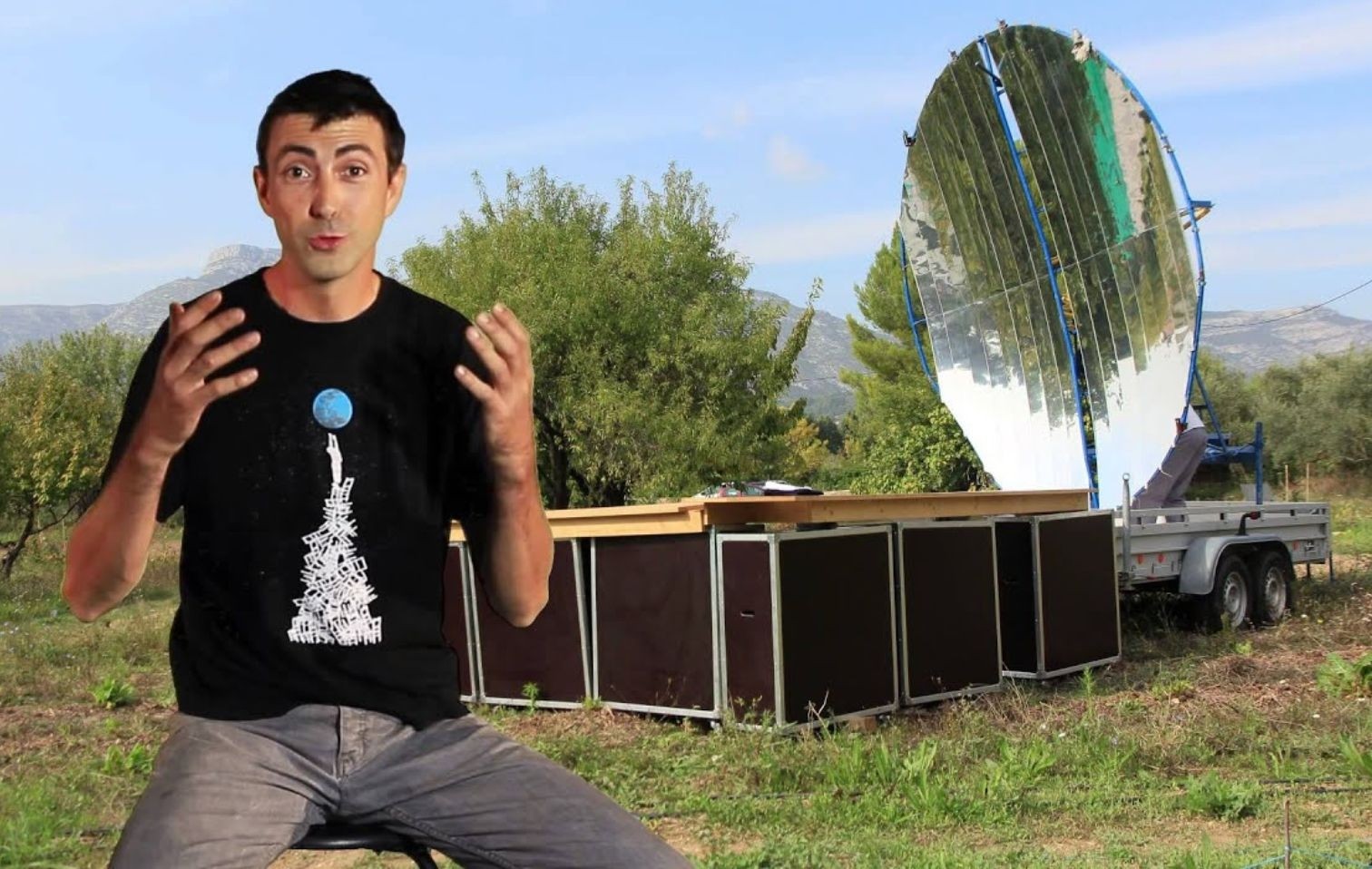Inaugurated on June 18 and opened to the public on the 20th, France's first restaurant powered by solar panels marks a breakthrough in sustainable dining! More than 400 people attended the launch of the initiative, including Mayor Marion Bareille, and Guillaume Gomez, ambassador of gastronomy, food and culinary arts in France.
The news
A real revolution marks the restaurant world, after a good ten years of experimentation opens in Marseille, in the garden of the Tiers-Lab des Transitions in the Chutes-Lavie neighborhood in the fourth arrondissement, Le Présage, the first restaurant to be powered exclusively by solar energy, opens.
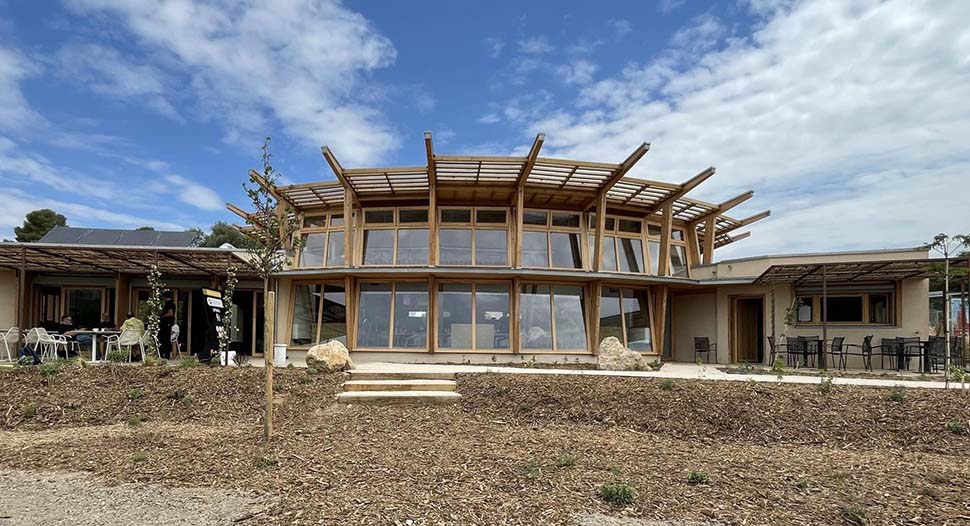
Pierre-André Aubert is the creator of a completely unique concept that condenses two of his greatest passions: cooking and sustainability. A former aeronautical engineer, he decided to dedicate himself to a crucial mission for the planet, at a time when the issue is more relevant than ever. With a deep awareness of the global challenges related to climate change, he thus researched and developed a unique project with the goal of promoting a more conscious and responsible lifestyle.
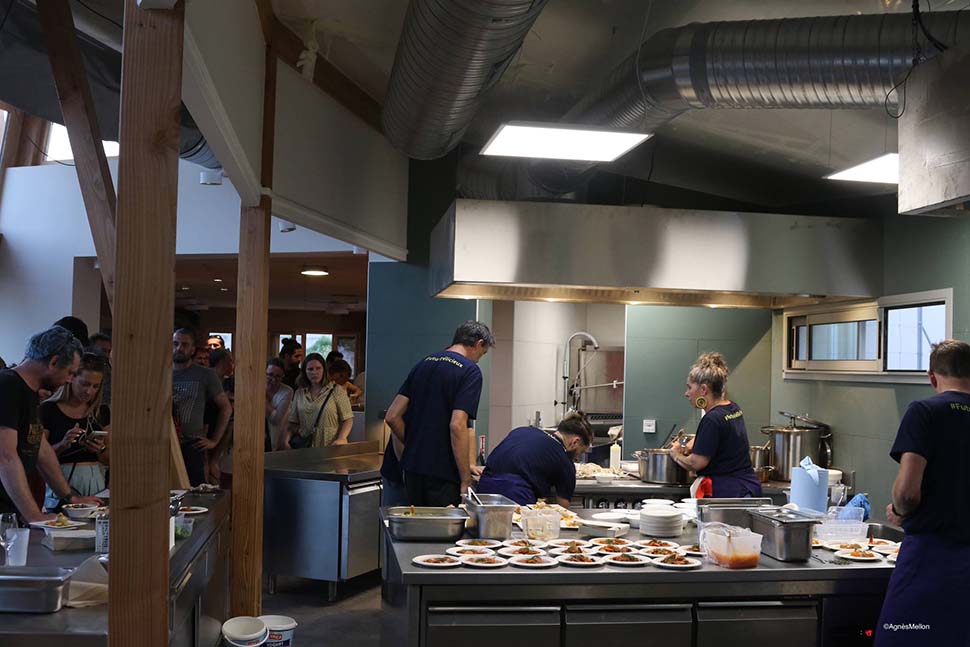
During the process Aubert integrated his expertise in science with gastronomy, creating innovative solutions that enhance local products. "We will not grow carrots and potatoes, but complementary foods," he declares to Gomet. His vision translates into concrete practices, such as using ingredients that are "local, seasonal, and as organic as possible," and from the garden adjacent to the 2720-square-foot restaurant, reducing food waste, and adopting cooking techniques that minimize the exploitation of natural sources.
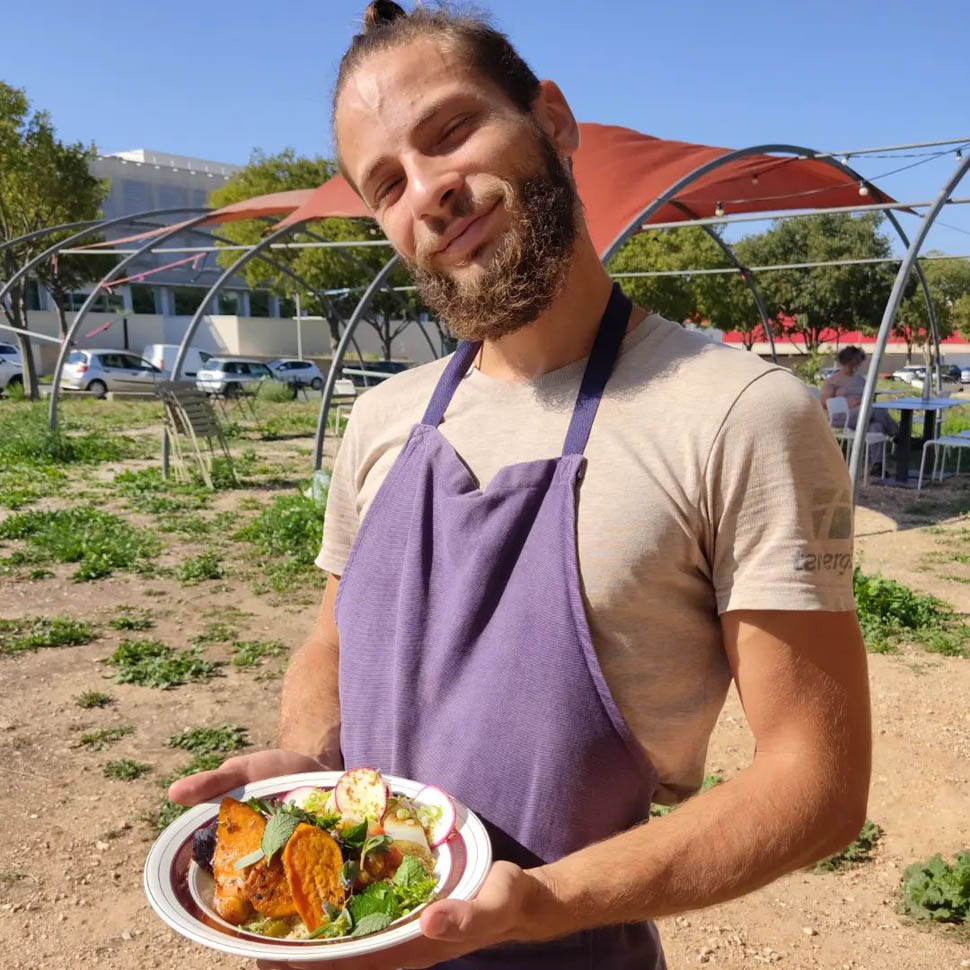
Romain Criquet, ethnobotanist, points out that the soil, or rather, the nourishing ecosystem, will begin to be prepared this fall. Intriguing dishes such as pickled peaches, creamy polenta with Mont Ventoux pork loin, and a panna cotta with seasonal fruit compote stand out on the menu.
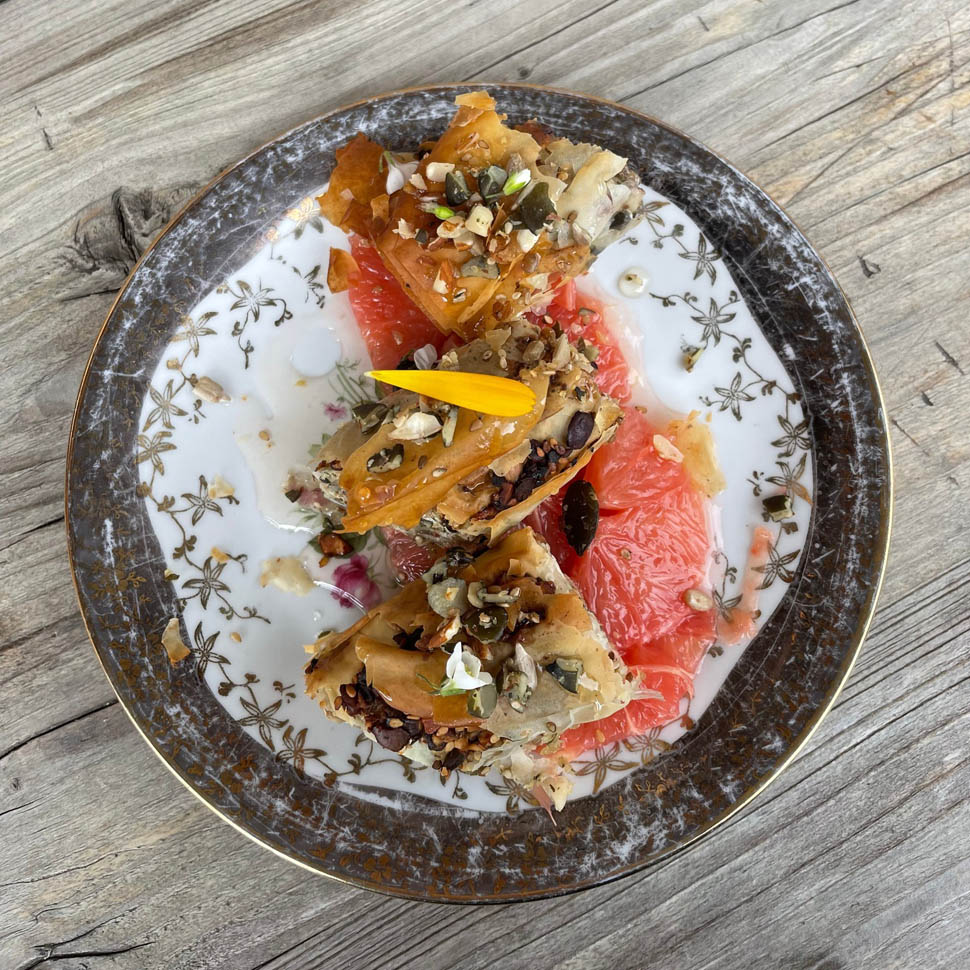
It is two large dishes-like parabolas that capture the sun's energy, whose rays are directed onto the stove in the kitchen. Should there be a shortage of light, biogas resources, produced from organic waste, will be ready when needed. In addition, there is also a phyto-purification system aimed at reusing wastewater. The building is made of concrete, hemp and wood, materials with a very low environmental impact. "The roof is designed so that when it is hot, the sun's rays do not penetrate inside, this prevents overheating during the summer months. A small wall located behind the large windows is made in part from soil recovered from the site and serves to store heat. The placement was designed specifically for this, as were the concrete and hemp walls. There will be enough heat in the winter and enough coolness in the summer," explains Benjamin Leroy, the restaurant's finance manager.
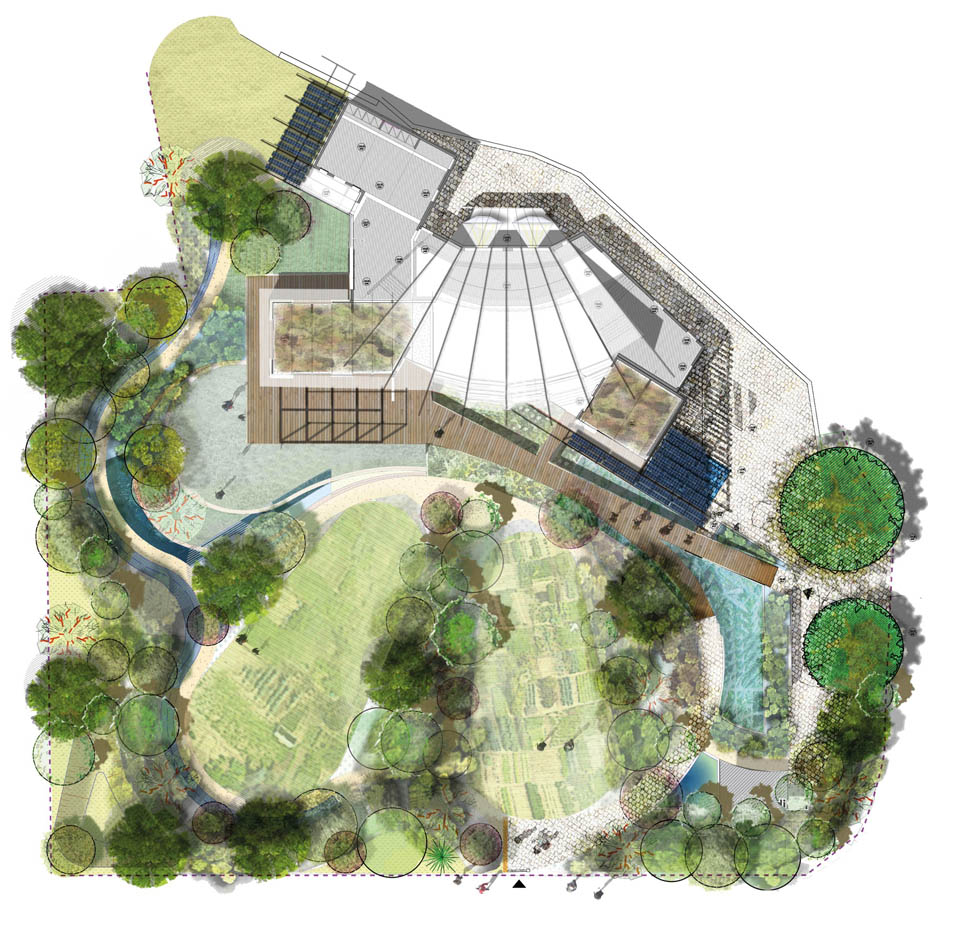
Several actors are working on the venture, Dual Sun has mounted the solar panels on the roof, while Polytech is looking for ways to optimize most of the equipment (ovens) and performance."What the team at Le Présage has created is extraordinary and very important. It is a demonstration that renewable energy, healthy food, and the responsible use of the land's assets can be converged in order to create a solid business," says Rob Hopkins, founder of the global transition cities movement on site.
